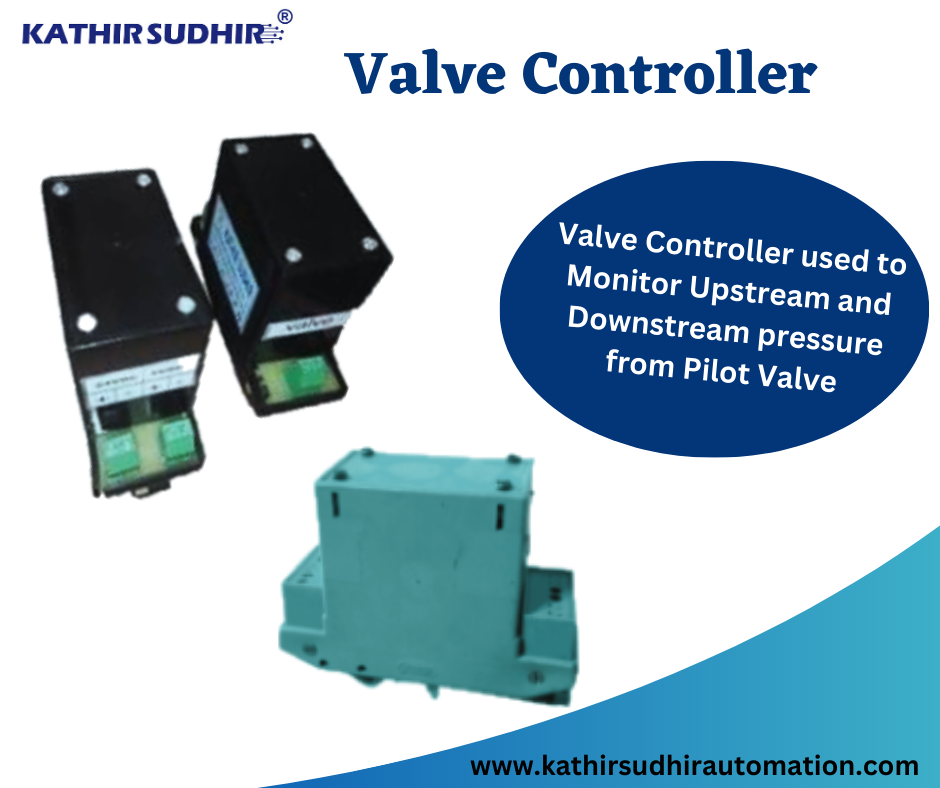Introduction: In industries where fluid and gas flow control is crucial, the reliable and precise monitoring of upstream and downstream pressure is of utmost importance. To meet this demand, engineers and technicians have come to rely on advanced valve controllers. Among these, the pilot valve-driven controllers have emerged as an essential tool for accurate pressure management. In this blog, we will explore the benefits and functionalities of a valve controller used to monitor upstream and downstream pressure, shedding light on its pivotal role in ensuring safe and efficient operations.
Understanding the Valve Controller:
A valve controller serves as the central control unit responsible for regulating fluid or gas flow through a valve system. It empowers operators to efficiently manage and monitor pressure levels, ensuring optimal performance and safeguarding against potential disruptions. The valve controller achieves this by maintaining precise pressure differentials, which are crucial in numerous industrial processes.
Monitoring Upstream Pressure:
Upstream pressure refers to the force exerted by the fluid or gas entering a valve system from its source. Controlling and monitoring this pressure is essential for preventing any possible damage to the system or downstream equipment. Valve controllers equipped with advanced pilot valves excel at accurately measuring and adjusting the upstream pressure. By analyzing the feedback from the pilot valve, these controllers enable operators to make informed decisions and implement necessary adjustments to maintain the desired pressure levels.
Monitoring Downstream Pressure:
Downstream pressure, on the other hand, is the pressure exerted by the fluid or gas as it leaves the valve system and moves towards its intended destination. Monitoring downstream pressure is crucial for ensuring consistent flow rates, preventing overpressure situations, and protecting downstream equipment from potential damage. A valve controller with the capability to monitor downstream pressure allows operators to maintain optimal operating conditions, avoiding disruptions and maximizing system efficiency.
The Role of Pilot Valves:
Pilot valves are a critical component of valve controllers designed for pressure monitoring. These valves are interconnected with the main valve and act as the control mechanism for pressure regulation. Pilot valves utilize feedback signals from sensors to accurately detect and communicate pressure changes in real-time. By constantly monitoring and adjusting the pilot valve, the valve controller ensures precise control over the upstream and downstream pressure.
Benefits of Valve Controllers for Pressure Monitoring:
- Enhanced Safety: Accurate pressure monitoring with valve controllers helps prevent overpressure situations, which can lead to system failures, leaks, or catastrophic accidents. By maintaining optimal pressure differentials, these controllers significantly improve operational safety.
- Increased Efficiency: Valve controllers enable operators to fine-tune pressure levels based on specific process requirements. By optimizing pressure differentials, the controllers promote efficient flow rates, reducing energy consumption and maximizing productivity.
- Remote Monitoring and Control: Advanced valve controllers often come equipped with remote monitoring and control capabilities. This feature allows operators to monitor pressure levels, make adjustments, and receive real-time alerts, even from a remote location. It facilitates proactive maintenance, troubleshooting, and prevents potential downtime.
- Data Logging and Analysis: Valve controllers can collect and log pressure data, offering valuable insights into system performance over time. This data can be analyzed to identify trends, optimize operations, and support predictive maintenance strategies.

Conclusion:
Valve controllers used for monitoring upstream and downstream pressure play a vital role in ensuring the safe and efficient operation of industrial systems. With their ability to accurately regulate pressure differentials, these controllers empower operators to maintain optimal flow rates, protect downstream equipment, and prevent system failures. As technology continues to evolve, we can expect valve controllers to become even more intelligent and capable, offering enhanced functionalities for improved pressure monitoring and control in the future.
